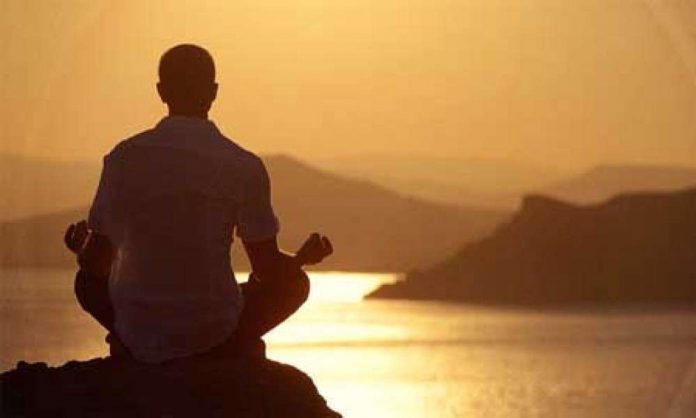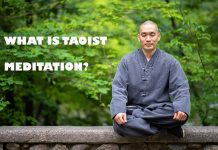What is the purpose of life? Is there a purpose at all behind this human life at all?
These are some questions that prop up in our mind, mostly after we cross the retirement age in life. Till then, most of us keep running in life chasing many things — money, sexual and other sensual gratification, possessions, wealth, comfort, status in society, peer group recognition, fame/ notoriety, power, authority, celebrity status and so on.
A few of us become fairly successful in attaining what we have been chasing, with different levels of attainment or satisfaction. Many of us may end up perennially unhappy because of our failure to attain what we have been dreaming of or because our goal seems to be constantly shifting from one level to the other.
All said and done, is it really possible to give one universally acceptable answer to the question “What is your purpose in life?” Let us try to analyze some typical answers to this question.
(1) “Purpose of Life is to eat, drink and be merry”
People who say so are those whose belief about life is mostly associated with satiating the basic needs and desires of the perishable human body and its sense organs. Experience in life teaches that there is really no culmination of satisfaction in these enjoyments. It is like attempting to douse the fire by pouring oil. Any excessive indulgence only results in getting pain instead of pleasure from the same sense organs.

Uncontrolled eating ends one up in diabetes. Excessive smoking leads to cancer in the lungs; excessive and uncontrolled indulgence in sex leads one to to AIDs or STDs. Excessive drinking leads one to Liver Cirrhosis.
Even controlled and moderated enjoyment seem to have their limitations. The type of joy one got in eating ice creams in childhood vanishes in adulthood. There does not seem to be any fulfillment in life if the pursuits in life are behind sensual gratification only.
(2) “Purpose of Life is to become famous”

To become famous comes in different forms of human endeavor in education, job/ profession, sports, fine arts, public administration/ politics and so on. Those who can’t do socially acceptable activities to get fame, resort to anti-social activities to become notorious, which is nothing but a darker side of fame-hunting. Seeking fame or notoriety is a need of the human ego.
Along with growth of fame in a person, there is always the fattening of ego associated with it. Egotistic persons tend to get into trouble with others easily, because many people develop a dislike towards them. That’s why very famous people also get caught in scams, controversies, bitter criticisms, hate campaign etc.
Think of Michael Jackson. Think of Mike Tyson. Think of George Bush. Now you can understand how becoming famous need not be the purpose of life!
(3) “Purpose of life is to do selfless service to others”

Many great masters in spirituality propose this as the purpose of life. At the same time they warn us that this purpose should not end up as “seeking of fame” through this channel. Hinduism accepts selfless service as a way of purification of the human soul towards attaining a much higher goal (discussed in the next heading) provided, it is done as a “nishkamya karma” – work sans desire in the fruits it brings.
(4) “Purpose of life is God realization / self-realization / to attain liberation”

Hinduism and great religious masters of Hinduism, like Ramakrishna Paramahamsa state this as the purpose of life.
Ramakrishna says emphatically that the purpose of the human birth is not to enjoy wealth, sensual pleasures, power or fame, but to ATTAIN GOD, that too in this very birth and not later. What prevents you from attaining it, nay, not even acknowledging it? He says it is the wonderful play of “maya” of God; God virtually seems to enjoy seeing His children sinking hopelessly deeper and deeper into the worldly pursuits eventually forgetting Him!
What is the very fundamental aspect of Maya? It is nothing but “Kamini-Kanchana” the most oft-repeated duo in Shri Ramakrishna’s essential teachings. Yes, it is the attraction towards woman (“Kamini”) and money (“Kanchana”- gold). It is the man’s attraction towards women (and vice versa) that puts one into the family bondage, which in turn makes one run around in search of money.
Once entangled in this duo, more bondages envelop – limitless materialistic desires, anger when desires fail to get fulfillment, delusion in differentiating right from the wrong, jealousy, hatred, sorrow and so on.
Shri Ramakrishna is extremely forthright in his statement that no godly pursuit is worth the effort until one escapes the clutches of Kamini-kanchana. Yoga (Union with God) and Bhoga (enjoyment of worldly pleasures) cannot co-exist.
In Hinduism, God realization and self- realization are two sides of the same coin. Great masters like Ramana Maharshi say, if you are not sure of existence God, at least you are sure of your existence now in this world. Find out who you are. Are you the perishable body? Are you the mind? Are you the intellect? This questioning will lead an earnest seeker to realize the true nature of his Atman. Hinduism calls this goal in different names – Mukti, Moksha, Sakshatkar, Nirvana, Samadhi etc.
And that is the purpose of life, according to Hinduism.


















